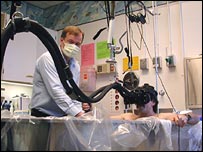|
This is my dynamic, frequently updated homepage. This is a NewsLog, also known as a WebLog or Blog.
Everything is evolving, so don't assume too much.
People to watch:
Adina Levin
Andrius Kulikauskas
Britt Blaser
Catherine Austin Fitts
Chris Corrigan
Clay Shirky
Dan Gillmor
Dave Pollard
David Allen
David Weinberger
Dewayne Mikkelson
Dina Mehta
Doc Searls
Elisabet Sahtouris
Elizabeth Lawley
Euan Semple
Florian Brody
Frank Patrick
Gen Kenai
George Dafermos
George Por
Graham Hancock
Greg Elin
Hazel Henderson
Heiner Benking
Inspector Lohman
Jean Houston
Jerry Michalski
Jim McGee
Jim Moore
John Abbe
John Perry Barlow
John Robb
Joi Ito
Jon Husband
Jon Lebkowsky
Jon Udell
Jonathan Peterson
Judith Meskill
Julian Elvé
Julie Solheim
Kevin Marks
Lawrence Lessig
Leif Smith
Letecia Layson
Lilia Efimova
Lisa Rein
Marc Canter
Mark Oeltjenbruns
Mark Pilgrim
Mark Woods
Martin Dugage
Martin Roell
Mary Forest
Matt Mower
Max Sandor
Michael Fagan
Mike Owens
Mikel Maron
Mitch Kapor
Mitch Ratcliffe
Nathalie dArbeloff
Netron
Noam Chomsky
Paul Hughes
Peter Kaminski
Phil Wolff
Philippe Beaudoin
Ray Ozzie
Raymond Powers
Rebecca Blood
Roger Eaton
Roland Tanglao
Ross Mayfield
Scott Lemon
Sebastian Fiedler
Sebastien Paquet
Skip Lancaster
Spike Hall
Steven Johnson
Stuart Henshall
Thomas Burg
Thomas Madsen-Mygdal
Thomas Nicholls
Timothy Wilken
Todd Suomela
Tom Atlee
Tom Munnecke
Tom Tomorrow
Ton Zijlstra
Lionel Bruel
Loic Le Meur
Nancy White
Mark Frazier
Merlin Silk
Robert Paterson
Colby Stuart
Nova Spivack
Dan Brickley
Ariane Kiss
Vanessa Miemis
Bernd Nurnberger
Sites to watch:
Edge
Junto
Absara
Rhizome
Nanodot
HeadMap
Openworld
FutureHi
Imaginify
Do No Harm
BoingBoing
Smart Mobs
Webcamorama
MetaFilter
NotThisBody
Disinfopedia
YES Magazine
Collective Web
WorldChanging
Disinformation
Escape Velocity
Space Collective
Friendly Favors
Emergent by Design
Independent Media
Global Ideas Bank
Forbidden Science
Greater Democracy
ThoughtsOnThinking
Disclosure Project
Explorers Foundation
Manufacturing Dissent
Collective Intelligence
Action without borders
Free Expression Network
Co-intelligence Institute
Electronic Frontier Foundation
French:
Emmanuelle
Manur
Elanceur
Loeil de Mouche
IokanaaN
Blog d'Or
Le Petit Calepin
GeeBlog
Absara
Guillaume Beuvelot
Ming Chau
Serge Levan
Jean Michel Billaut
C'est pas Mécanique

I live in Toulouse, France where the time now is:
01:06
Unique Readers:

Primarily
Public Domain
Everything I've written here is dedicated to the
Public Domain.

The quotes from other people's writings, and the pictures used might or might not be copyrighted, but are considered fair use. Thus, overall, this weblog could best be described as being:
Primarily Public Domain. |
Syndication:
 ![Validate my RSS feed [Valid RSS]](http://www.newciv.org/pic/valid-rss.png)
|
| Saturday, March 13, 2004 |  |
|
|
|
 A nice little snapshot slideshow at BBC News about Zvi Bentwich, a well-known and respected Israeli immunologist who now spends his weekends in the West Bank and Gaza doing humanitarian medical work. A nice little snapshot slideshow at BBC News about Zvi Bentwich, a well-known and respected Israeli immunologist who now spends his weekends in the West Bank and Gaza doing humanitarian medical work."Among Palestinians I have worked with or treated, I have never experienced any kind of hostility – not in a look or a word. I am appreciated by them in the same way that I am appreciated by my Israeli patients. This is the reward of this work." I'm glad there are always good people doing good things, despite any odds against them.
[ Inspiration | 2004-03-13 05:07 | | PermaLink ] More >
|
|
|
|
 Wired has a good article about people working in computer companies in India, who do a lot of business that is out-sourced from the U.S. It can well freak out a lot of high-tech employees in the U.S. that what is a $70,000 a year job in their area is more like a $7,000 a year job in India. And it is today both technically and organizationally very possible for a large company to oursource big chunks of their work to a place like India. And what might freak out the guy in the U.S. even more is to realize that his counterparts in India are well-ecucated, professional, well-organized, and probably willing to work harder to get the job done. Wired has a good article about people working in computer companies in India, who do a lot of business that is out-sourced from the U.S. It can well freak out a lot of high-tech employees in the U.S. that what is a $70,000 a year job in their area is more like a $7,000 a year job in India. And it is today both technically and organizationally very possible for a large company to oursource big chunks of their work to a place like India. And what might freak out the guy in the U.S. even more is to realize that his counterparts in India are well-ecucated, professional, well-organized, and probably willing to work harder to get the job done.
I can certainly have the same fears. My expectation of how I will be paid is along the lines of the U.S. scale. But I also notice increasingly how there are programmers on the net from Russia or Asia who apparently can do large jobs for what I would consider impossibly small amounts of money. And they seem skilled and professional. I obviously can't compete on price with somebody who'll do for $200 what I'd need $5000 for.
But that Wired article makes it seem natural and positive. Which I'm sure it is. In a global free market, those who're best suited to do a job, and who can do it the best, for the lowest costs - of course it makes sense if they do it. It would be silly to try to use laws and protectionism to force people to needlessly pay 10 times as much for the same work. Efficient telecommunication tools allow high-tech industries and booming economies to grow and flourish in places where they otherwise couldn't. That's a good thing. That a lot of the business comes from other places than where the workers are does in no way have to be any problem.
So, the answer is of course to be flexible, and to do the things that ARE needed in one's local area, and which one can make a valuable contribution towards. So, maybe one might put the business together, or structure it, or sell it, or consult about it, rather than necessarily doing all the work locally. There are always things to do. Like, how Aparna Jairam, the project manager on the picture, quotes from the Bhagavad Gita:"Do what you're supposed to do. And don't worry about the fruits. They'll come on their own."
[ Information | 2004-03-13 05:35 | | PermaLink ] More >
|
|
| Friday, March 12, 2004 |  |
|
|
|
 Around 200 people dead from simultaneous terror bombings of commuter trains in Madrid. Around 200 people dead from simultaneous terror bombings of commuter trains in Madrid.
Well, I normally am not of a mind to just mention bad news because it is "news". But I can mention a few things it brings up for me...
It is the next country over, so it doesn't have the same emotional impact for me personally as it would if it were in France, even in Paris. Or in Denmark or in Los Angeles, places that have been home for me. Somehow we will often compartmentalize things, so it somehow doesn't hit the same unless we consider it within "our" territory. Otherwise it feels like "over there", rather than "here".
It is always a tragedy when innocent people die violently and suddenly. But we have weird subjective ways of measuring it. It is the same kind of tragedy for the family and friends for every single person. But if 200 people died in a plane crash, it wouldn't register remotely the same way. Or if 50,000 people die in an earthquake in China, it is a bit unfathomable to try to relate to it, so it easily becomes just another news item. Or if 500,000 people die in Iraq from the side effects of a war carried out to protect oil interests, how do I respond to that? It is bad, but it easily just becomes an abstract number, rather than that number of personal tragedies.
But we're nevertheless surprisingly connected. So if even an apparently small number of people is involved in some dramatic event, we usually know somebody who knows somebody. In my French class this morning, several of the Spanish people present had friends or family members who were there in Madrid and who had been on the next train or the previous train and that kind of thing.
This particular event seems to have a large emotional impact on Spain and on the rest of Europe. A mini 9-11 event. Something that shouldn't be possible. Something we didn't expect where we live. Something that makes us feel more vulnerable. And maybe angry at the perpetrators, even the first possible group identified as the likely perpetrators, whether they actually did it or not. Or maybe more compassionate and solidaric with each other.
My guess would be that this is more related to an apparent al-Qaeda related group, rather than the Basque separatist group ETA.
But I also believe that when deliberate well organized, well planned, and well financed events are carried out, one needs to look carefully at who it benefits. "Follow the money" is one variation of that. Or look at who actually wants the outcome that quite naturally follows from such an event. Which often gives totally different answers than those that follow from who's officially blamed. Did it further the cause of Bin Laden and al-Qaeda and the Taliban that 9-11 happened? No, they were just about bombed into oblivion. And the United States was turned into an oppressive police state with a strengthened military and the willingness to use it anywhere, with little justification, without any need for public support. The Iraq invasion, however, was a godsend for groups like al-Qaeda, who were supplied with another lawless territory to operate out of, and a lot of motivated new recruits, and a lot of easy targets. So, if you follow my logic here, 9-11 was most likely masterminded by folks who wanted to turn the United States into a much more tightly controlled society, and who wanted greatly increased power and resources given to military activities, with greatly lessened checks and balances. You can guess who that might be, but that it would be some guy in a tent in Afghanistan would be a bit farfetched. And the unilateral Iraq invasion was masterminded by folks who wanted to support increased terrorism and lawlessness in the world. And, sure, those might very well be the exact same people, as those objectives can dovetail into each other quite well. But those actions certainly wouldn't be carried out neither by people who want to free muslim areas from outside influences, nor people who want peace and safety and freedom for the common folks anywhere. Unless the planners were extremely mis-informed, uneducated, unprepared and bad at carrying out any objective at all in any organized way. Which I'm quite sure isn't the case.
So, as to Madrid, who's cause would this support? Certainly not the ETA, as everybody hates them now, and large resources now will be applied to wiping them out. No, it would support folks who would like Europe to catch up to the U.S. in terms of population control and general paranoia.
What to do? What regular people can do is at least to use the coming elections to remove the government leaders in their countries who are furthering that agenda by their actions and propaganda. So, say goodbye to Jose Maria Aznar and George W. Bush.
[ News | 2004-03-12 10:14 | | PermaLink ] More >
|
|
| Sunday, March 7, 2004 |  |
|
|
|
 Today we drove to Lourdes. Which is a little town in the foothills of the Pyrenées visited by more than 5 million people each year, as it is a major catholic pilgrimage site. It is a beautiful and peaceful place, well placed next to some spectacular mountains. But it is also a strange town. There's almost nothing but lots and lots of hotels and souvenir shops there. And it all leads towards The Grotto. Which is a little cavity in the side of a big rock, in which you find a small spring. And it is the water of that spring that has been reported to produce lots and lots of miraculous healings and miracles in general. And I'd believe that. Well, whether the water really does anything or not, I don't know. But there's an impressive atmosphere set up for the purpose, and enough people who believe it and take it very seriously, that miraculous occurances would quite naturally occur. Today we drove to Lourdes. Which is a little town in the foothills of the Pyrenées visited by more than 5 million people each year, as it is a major catholic pilgrimage site. It is a beautiful and peaceful place, well placed next to some spectacular mountains. But it is also a strange town. There's almost nothing but lots and lots of hotels and souvenir shops there. And it all leads towards The Grotto. Which is a little cavity in the side of a big rock, in which you find a small spring. And it is the water of that spring that has been reported to produce lots and lots of miraculous healings and miracles in general. And I'd believe that. Well, whether the water really does anything or not, I don't know. But there's an impressive atmosphere set up for the purpose, and enough people who believe it and take it very seriously, that miraculous occurances would quite naturally occur.
On top of the rock where you find the grotto there's a large and spectacular cathedral-like church with an impressive set of stairs leading up to it, and a very impressive entrance. We were obviously there outside the season, as there wasn't really that many people, and it was clear that the whole arrangement was expecting tens of thousands of people at a time. You line up for the entrance into the grotto, where I suppose you'll know what to do if you're a good catholic. The rocks are black and smooth from being touched by millions of people. And you buy large candles that you can light and leave in an area for that purpose, together with a prayer.
So, we did stock up on healing water from Lourdes. You can buy many kinds of containers in the shops, which you fill yourself from the spring, but we didn't go for the 5 liter models, just some little ones. And the water tasted nice and fresh.
For more about Lourdes and the visions of Bernadette Soubirous that started the whole thing, read for example here or here
[ Diary | 2004-03-07 15:09 | | PermaLink ] More >
|
|
| Saturday, March 6, 2004 |  |
|
|
|
 Max and I spent the day driving around a bit and looking at old mysterious places. The old medieval walled city of Carcassonne, Nostradamus' house in Alet-le-Bains, Quillan, and Rennes-le-Chateau, the most famous mysterious place around here. See here or here if you don't know the story. It involves Abbe Berenger Sauniere who found something strange while restoring the old church. Documents or a treasure, exactly what isn't exactly clear. But he came to a considerable amount of money, allowing him to fix up the place, decorating the church in strange ways, adding various buildings for himself, such as the Magdala Tower on the picture. He traveled in occult circles and had unusually many celebrity guests for a priest in a small country church. An enormous amount of stories and speculation exist about what he might have done. It involves possible hidden treasures from the Visigoths, the Templars or the Cathars. Max and I spent the day driving around a bit and looking at old mysterious places. The old medieval walled city of Carcassonne, Nostradamus' house in Alet-le-Bains, Quillan, and Rennes-le-Chateau, the most famous mysterious place around here. See here or here if you don't know the story. It involves Abbe Berenger Sauniere who found something strange while restoring the old church. Documents or a treasure, exactly what isn't exactly clear. But he came to a considerable amount of money, allowing him to fix up the place, decorating the church in strange ways, adding various buildings for himself, such as the Magdala Tower on the picture. He traveled in occult circles and had unusually many celebrity guests for a priest in a small country church. An enormous amount of stories and speculation exist about what he might have done. It involves possible hidden treasures from the Visigoths, the Templars or the Cathars.
Very interesting to finally go there and walk around in his house and his tower and in the church. Well, if I didn't know that it is supposed to be a strange and mysterious place, I'm not sure I would have caught it. It takes some scholarly knowledge and close observation to notice that the church is arranged in unusual ways and that the inscriptions are remarkably strange. I wouldn't say that the place particularly indicated great wealth. I mean, there's a little church, a house, and a tower. Without knowing the story, that might not seem unusual.
But, generally speaking, there is a mysterious and deep aura over many parts of the Lanquedoc region. Mountains, caves, forests, rivers, medieval villages, castles, ruins, ancient history, war, massacres, alchemy. So, plenty to keep exploring in the future.
On the way back we drove past Montsegur, the location of the last stand of the Cathars, before the last bunch of them were burned alive. But, well, it was getting dark, and it way up on top of a very steep mountain, so that will have to be another time.
[ Diary | 2004-03-06 18:20 | | PermaLink ] More >
|
|
| Friday, March 5, 2004 |  |
|
|
|
Via Bird on the Moon, listen to the strange Radio Vox Populi.Radio Vox Populi is a realization of the people's voice, taking the content of the weblogs and broadcasting it back to the world. As weblog authors update their sites their writing is collected, synthesized into speech, and streamed to listeners as an Internet radio station. Live from the commons 24 hours a day, 365 days a year. You hear snippets from recently updated weblogs, read aloud by robot voices, and complete with the effect of changing from one radio station to another on the dial. A bit hard to hear, but it is an intriguing experience.
[ Culture | 2004-03-05 13:10 | 0 comments | PermaLink ]
|
|
|
|
OK, karaoke can be fun, but now there's Movioke. Play the parts you want in your favorite movies. Well, it sounds like you just speak along with the characters on the screen, over the soundtrack. But what would be cool would be if, like in karaoke, the real actor and his voice was digitally edited out of the film, and you were superimposed in there instead. Of course that's a bit of a hard trick at this point. Anyway, I'll start off myself in the small:"I've seen things you people wouldn't believe. Attack ships on fire off the shoulder of Orion. I watched C-beams glitter in the darkness near the Tannhauser gate. All those moments will be lost in time, like tears in rain." It is an easy one, but guess where it is from.
[ Culture | 2004-03-05 13:11 | | PermaLink ] More >
|
|
|
|
Telltale Weekly offers audio books online for less than a dollar, and without stupid copy protection schemes. They have very few titles so far, but it looks promising.
[ Culture | 2004-03-05 13:11 | | PermaLink ] More >
|
|
|
|
 My daugther discovered Google. I guess she has seen us searching for stuff, so she knew that was something to do. So, she decided on her own she wanted to look for Cindarella. She found Google, but she couldn't spell "Cindarella", so she spelled one of the five or so things she can spell: her own name. Which right away got her to some story from my weblog. And in less than 10 seconds she had a picture of herself on the screen. Which she thought was very cool. My daugther discovered Google. I guess she has seen us searching for stuff, so she knew that was something to do. So, she decided on her own she wanted to look for Cindarella. She found Google, but she couldn't spell "Cindarella", so she spelled one of the five or so things she can spell: her own name. Which right away got her to some story from my weblog. And in less than 10 seconds she had a picture of herself on the screen. Which she thought was very cool.
[ Diary | 2004-03-05 13:59 | | PermaLink ] More >
|
|
| Thursday, March 4, 2004 |  |
|
|
|
It is somehow harder for me to blog when I'm more busy. Which is maybe obvious, but also weird in that it is often that I ought to have more things to blog about. My friend Max is visiting right now from Brazil via Germany. We're having good meetings and going around doing interesting things. But that takes a good deal of the day, and I'm also behind on work. And blogging usually requires a certain overview for me. That I've somehow checked on the latest news and newsfeeds and hung out by my computer for a while. Even if it isn't necessarily news items I blog, and often isn't directly related to what anybody else posts. But it is much harder for me to just go and do a quick posting, if I hadn't had the time to take a reading of the current online atmosphere. I know other people do it differently and can blog under any circumstances. But for me, even if the actual writing of blog post doesn't take much time in itself, it has to fit in a context where I've had time to explore various things and been able to think about various things. Which requires a certain distance. I can't go directly from a deep, interesting face-to-face discussion into writing a blog post, even if the subjects brought up are intriguing and worth sharing. I can't blog meaningfully while sitting listening to somebody speak, as some people can, even if the technology is available for it. But, hey, we have our different styles.
[ Diary | 2004-03-04 06:25 | | PermaLink ] More >
|
|
|
|
 Excellent article, Magic Words: Interactive Fiction and the 21st Century, about, well, Interactive Fiction. Which is the kind of text adventure games that were quite popular in the 80s. I first played the classic "Adventure" game in 1975. I still have my map of Colossal Cave lying around here somewhere, and remember a lot of the rooms. Another well-known series of adventures is Zork, which starts like this: Excellent article, Magic Words: Interactive Fiction and the 21st Century, about, well, Interactive Fiction. Which is the kind of text adventure games that were quite popular in the 80s. I first played the classic "Adventure" game in 1975. I still have my map of Colossal Cave lying around here somewhere, and remember a lot of the rooms. Another well-known series of adventures is Zork, which starts like this:You are in an open field west of a big white house with a boarded front door.
There is a small mailbox here. And then you can essentially move in different directions by typing commands in very simple English. "Go West", "Open mailbox", "Pick up sword" and that kind of thing. And you explore various creepy and strange places and solve riddles and meet strange creatures. Or whatever the scenario might be.
Interactive text games might seem really ancient for kids today who are used to full motion 3D virtual reality. But it is an intriguing world of its own, stimulating other faculties of imagination. And it is in no ways dead, even though no games makers are making money on it. The article illustrates that well. There are thousands of titles, often made by enthusiasts just for the joy of it. They're often not really games, but more like stories you can walk around in and explore.
Now, if I actually had too much time on my hands, I wouldn't mind writing some interactive fiction. Or how about the possibilities of combining the Interactive Fiction style with navigating around a blog or a WIKI. Like hinted at on that site."You are at the title page of an Interactive Fiction feature. In the left sidebar you see a selection of text links which will lead to other pages within the article. A blinking cursor prompts you to make your selection." Navigating the web might be more stimulating if you're at risk of being eaten by a grue in the dark.
[ Culture | 2004-03-04 07:15 | | PermaLink ] More >
|
|
|
|
 Today we went to an exhibition of "Machines de Spectacle" in the Abattoirs modern art museum. Which was great fun. It was a collection of strange machines, small and large, of rather unusual, eh, uses. On the picture you see the piano catapult. Which, as you might expect, has the very useful function of throwing used pianos through the air, obviously to a very effectful and noisy landing. They unfortunately only do that once per week, so we didn't see it today. But most of the other machines were demonstrated. Snow machines, an organ using flame throwers as pipes, smell machines, mechanical chairs, machines that make and serve chocolate sandwiches or tequilas, egg canons, pie throwers, and much else. Very entertaining art. Today we went to an exhibition of "Machines de Spectacle" in the Abattoirs modern art museum. Which was great fun. It was a collection of strange machines, small and large, of rather unusual, eh, uses. On the picture you see the piano catapult. Which, as you might expect, has the very useful function of throwing used pianos through the air, obviously to a very effectful and noisy landing. They unfortunately only do that once per week, so we didn't see it today. But most of the other machines were demonstrated. Snow machines, an organ using flame throwers as pipes, smell machines, mechanical chairs, machines that make and serve chocolate sandwiches or tequilas, egg canons, pie throwers, and much else. Very entertaining art.
[ Diary | 2004-03-04 13:50 | | PermaLink ] More >
|
|
|
|
 The major subway systems of the world, presented on the same scale. Why do I find that interesting? Well, it is somehow interesting to be able to compare stuff that one hasn't noticed being compared before. Particularly somewhat hidden infrastructure. Here is more info about those subways: length, number of riders, etc. The major subway systems of the world, presented on the same scale. Why do I find that interesting? Well, it is somehow interesting to be able to compare stuff that one hasn't noticed being compared before. Particularly somewhat hidden infrastructure. Here is more info about those subways: length, number of riders, etc.
[ Organization | 2004-03-04 15:06 | | PermaLink ] More >
|
|
| Saturday, February 28, 2004 |  |
|
|
|
Alright, so having a mobile phone with a camera I of course need to have a moblog. "Moblog" is an even worse word than "Blog", but that's somehow what it got to be called. It is essentially that you can make a posting on your blog while on the go, from a phone or PDA. Typically it is done by having the latest picture in a sidebar, which then links to the gallery of past pictures. So it becomes sort of a different track, with smaller snapshots of things one is doing, without having to be able to say something clever about it.
I had in mind programming it myself, so that it could be integrated with my NewsLog blogging program. So, the first thing needed was a gallery. And there's of course no reason one should only be able to post to it with a phone, so I made it so one can upload from a normal file too, or grab a picture from a URL. And so one can edit the titles, delete mistaken pictures and stuff like that.
OK, then the aspect of how we get from my phone to a file on the server, if I go that way. I could make my own approach, but I glanced at other people's suggestions to see what might be the best practices. Like this how-to guide by David Davies.
So, I set up a separate e-mail account for the purpose. No problem to send a picture from the phone to an e-mail address. Then I'll put a password in the subject line, which will ensure that no random spam gets posted. And I'll put some descriptive text in the message itself.
Now, picking up e-mail from a pop account, and finding an attached picture, is not quite as trivial a programming task as it might look like. It is no wonder that most e-mail programs do something different and often screw up each other's messages. The standards are rather complicated, and everybody doesn't keep them. So this part took the longest time. I used PHP's built-in IMAP functions, which is based on a common IMAP library. Which exposes a lot of the dirty detail, rather than just doing the job for me, like handing me the attachment no matter where it was hiding. For starters, I made it so that it at least picks up the text and attachments the way my phone sends it. Which happened to be two different ways depending on whether it was a photo or a drawing. Next I'll try sending pictures from my normal e-mail programs and debug what goes wrong with that. Anyway, I made the program pick up mail once per hour, as the mail pickup is rather slow, and I don't want to overload anything if there ends up being many of these accounts.
You can see the current result in my right sidebar. Just a few pictures so far, but you get the point.
And for you other guys who use my NewsLog program, I need to work out a few more details, then this functionality will be available for you too. I.e. you can have a picture gallery, and optionally post to it via e-mail. Only hurdle for that part might be to acquire an extra e-mail account for the purpose.
[ Diary | 2004-02-28 17:10 | | PermaLink ] More >
|
|
|
|
 It snowed last night. It snows very rarely here, so it is an event every time. We rushed out and had a snowball fight and made a snowman before it melted again. It snowed last night. It snows very rarely here, so it is an event every time. We rushed out and had a snowball fight and made a snowman before it melted again.
Then, after we got in again, a little later, I walked outside and realized that somebody had made off with our two bicycles. Locks and all. Which is a bummer, as that is basically our transportation, and the cost isn't exactly trivial for us. Plus it is always an uncomfortable feeling when somebody has invaded your space and stolen your things. Here we're talking: behind a big closed iron gate one needs to roll aside, and at the end of our driveway around a little corner.
We had otherwise been snickering about the French paranoia about burglars and thieves. Everybody seems to lock their gate with a key whenever they go in or out, and they live behind closed shutters, and, I'm sure, multiple locks and alarm systems. And warn everybody who will listen about the dangers of leaving anything not secured, and how bad people are roaming everywhere. Despite that we haven't seen any. OK, we roll down the shutters too when we leave. And we lock the front door when we leave, which we didn't take very seriously in the U.S., where we didn't even think much about leaving a car unlocked in the street. So here we're a little more secure, but locking the gate seemed a little excessive.
Guess we have to change our mind a bit. Lock the front gate all the time. Chain bicycles to something stationary behind the gate. Maybe I should dig up that box of X10 video cameras I never have gotten around to playing with, and watch the perimeter at all times. Make sure anybody who touches the fence gets electrocuted. Dig a mote filled with piranhas. I don't know.
[ Diary | 2004-02-28 17:57 | | PermaLink ] More >
|
|
|
|
Verisign is one of more despicable and corrupt companies I can think of. They still have a bit of a monopoly position in that they maintain the central registries of .com and .net domains, amongst others. The domains can be sold by many other registrars, but Verisign maintains the central database. If that's all they did, even as badly as they typically do, it might be fine. But they keep coming up with clever business schemes for tricking people into registering domains with them rather than with competitors, or paying them ransom money for useless services.
One of my clients had a couple of domains names I had registered for her. When it came time to renew them she didn't get my messages because of an old e-mail address, so they expired. They were registered with OpenSRS, which is the registrar I'm a wholesale provider for, and which generally does a great job. They have very clear rules about what happens when a domain expires. After a few days it stops working in DNS, and after a 40 day grace period, it gets deleted. And that is how it works. The domain becomes unregistered after 40 days. After which I, or anybody else, should be able to go and re-register it.
But Verisign got the bright idea of offering a special "service" for domains that are deleted. It consists of that they don't actually delete the domain as instructed, but they offer the recent owner that for $80 they can re-instate it. Which is as well fairly cumbersome and takes 7 days. The period where this arrangement is in place should supposedly be a 30 day "Redemption" period (beyond when the domain should have been deleted) and a 6 day "Pending Delete" period. So, one could just wait till after that time and re-register the domain? Not even that, because Verisign doesn't even stick to their own guidelines. Like it has done for many years, it keeps the domains for much longer times, without any explanation as to why or how long. One of those domain has been two months in the Redemption period. Another has been a month in the Pending Delete period.
ICANN, the entity actually responsible for the whole domain system, is also being blamed for this. However, looking an their previous proposal, meant to help domain owners avoid losing their domain by forgetting to renew it, I realize that it is what my own register already had implemented, as had most others. I.e. if your domain expires, your domain will be on hold for about a month of grace period. Then it will be "pending deletion" for about a week or so after that, and then it will be gone. That's normal registrar practice. That Verisign then adds their own procedure on top of that is totally unnecessary and nothing more than a scam. Kind of like if the post office kept a letter sent to me and then offered me the service of paying $80 for receiving it sooner than in a couple of months.
There have been a string of other similar business practices from Verisign, or proposed future plans. Verisign and ICANN just got sued by a group of registrars for a planned scheme that involved selling already registered domain names by auction to other people, to "guarantee" that one would get the domain name if it expired. And at the same time sell insurance to the actual domain owner, to ensure that nobody else can get their domain.
And Verisign just sued ICANN for trying to hinder them from running the "Site Finder" scam they had started up last year. The idea was that whenever anybody mistyped a domain name address, and accidentally asked for a domain that didn't exist, they'd end up on Verisign's site which would offer to sell them that domain name. Remember, as a registrar Verisign is just one of many competitors, but they used their control of the underlying database to lead people to their own registration service, making them think it would be the "correct" path to follow.
Before that, they tried their luck by sending out phoney renewal notices for domains that weren't registered with them, just like several other unscrupulous companies were. I.e. you get a "renewal" notice in the mail, saying that your domain is expiring on such and such a date, and that if you pay now, it will be renewed and taken care of. Except for that the domain wasn't registered with them, so what they're really asking you to do is to *transfer* the domain to them from your current registrar. But many domain owners don't really understand the fine points of that, and renewing one's domain before it expires always sounds like a good idea.
Around that time too, another of their schemes was that they would automatically throw a wrench in the machinery whenever a domain was requested to be transferred to another registrar. Which is a standard function in the domain system. The receiving registrar checks with the owner of the domain that they really intend to transfer it, and then file the transfer instruction with the domain database, which should then be carried out in a day or two without incident. Instead, Verisign would automatically throw away all of the transfer requests, and not say anything to the owner of the domain, nor to the requesting registrar. And after a couple of weeks, the transfer would time out and fail without explanation. Only if the customer called Verisign and verbally instructed them to allow the transfer to go through would it actually happen. And talking to Verisign is a bit like getting through to the IRS. Plus that the actual customer is likely to have a hard time explaining what is going on to them, as it is naturally a bit technical.
Oh, there's a good deal more, but that's enough of a rant for now. But look at the Verisign Sucks page, as lots of other folks have had the exact same problems I describe here. Or go here or here. Lots of stories of fraud and deception.
[ Opinions | 2004-02-28 18:00 | | PermaLink ] More >
|
|
| Thursday, February 26, 2004 |  |
|
|
|
 I finally have another cell phone. Which I was in two minds about. We've actually been doing perfectly fine with just one cell phone for the family. Which is strange, as we had five cell phone accounts in L.A., and that seemed about right. But it is a bit in the same category as that we had three cars to drive, and it was hard to imagine much less. But now, if I hint at that we maybe should find out how to have a car soon, everybody else says "A car!?! What on earth do we need a car for?" And if I suggest that I might get one more cell phone account, it also goes: "What would you possibly need that for?!" We've gotten used to living a bit more simply, and are actually quite happy with that. So I'm hesitant to restart the "arms race" of trying to keep up with the things one is "supposed" to have, as one thing leads to another, and new things create new needs, and it doesn't really end. I finally have another cell phone. Which I was in two minds about. We've actually been doing perfectly fine with just one cell phone for the family. Which is strange, as we had five cell phone accounts in L.A., and that seemed about right. But it is a bit in the same category as that we had three cars to drive, and it was hard to imagine much less. But now, if I hint at that we maybe should find out how to have a car soon, everybody else says "A car!?! What on earth do we need a car for?" And if I suggest that I might get one more cell phone account, it also goes: "What would you possibly need that for?!" We've gotten used to living a bit more simply, and are actually quite happy with that. So I'm hesitant to restart the "arms race" of trying to keep up with the things one is "supposed" to have, as one thing leads to another, and new things create new needs, and it doesn't really end.
But what makes the difference now is that I'm being paid for watching servers again. Which means that to seem to do my job I need to be reachable all the time, and that I can have my servers send me pages when something needs attention. And preferably also that I can look at various monitoring webpages, and that I can log into a server and restart something. And an IM program like ICQ would be really nice. Then I can actually go somewhere without being constantly worried about what might be going wrong in the meantime.
Last time I made a serious attempt at getting most of that to work was two years ago. A bluetooth GPRS tri-band GSM phone (Nokia 3610i) and a Palm handheld with an added bluetooth module, so it could talk with the phone. Which sounded like it would do what I wanted. But the phone seems to have a buggy bluetooth implementation, so it would tend to disconnect often. And the bluetooth module for the Palm sticks out at the end, so I can't really put it in my pocket like that, and the connector to it broke as well. I did manage to get a persistent GPRS connection to work a few times, and I got ICQ to run on the Palm. Which was great for about two minutes, until the Palm shut off, which it does if you don't touch it for a little while. Which killed my idea of having ICQ running in my pocket. And the always-on net connection over GPRS only worked for me in Europe. In L.A. I was using Cingular as provider, and they had just started implementing GPRS and it worked badly and slowly. So I was pretty much back to just receiving pages by SMS.
And my drawers are full of other, earlier attempts of attaining always-on connectivity while being mobile. Several Palm devices, like the VII which had built-in wireless, except for you couldn't do anything very useful with it. Various kinds of cards for my laptop. A CDPD cellular modem, which had trouble finding a signal just about anywhere. A Ricochet card, which worked wonderfully all over L.A. and in various airports, for about a month, until the original company went under. And then a long string of mobile phones, going back to almost 20 years ago when it was a $2000 suitcase you could indeed carry, but it wasn't exactly handy.
So, I don't quite think it is the holy grail yet, but my new Sony Ericsson P900 actually seems to work. It has a big color screen and a built-in PDA. The bluetooth and GPRS actually works. I can run an IM program and it actually keeps running after I put it back in my pocket. I can run a terminal program and log into servers with SSH. I can actually look at a webpage in a somewhat useful way. And as a bonus it has a built-in camera and it is easy to send a picture or video by MMS or e-mail. And MP3 player and other goodies. Anyway, the picture thing is particularly cool, as it means I'll be able to do a moblog and post pictures on my blog on the fly without having to first go home and download my camera and upload by ftp.
[ Diary | 2004-02-26 07:47 | | PermaLink ] More >
|
|
|
|
 Stuart Henshall summarizes a paper, Sense in Communications", by Douglas Galbi, who is an economist with the FCC. The paper is an in-depth 190 page study on "Presence". He states in part that: "To avoid disaster, the telecommunications industry needs to shift from providing telephony to providing means for making sense of presence." Anyway, I agree with Stuart that it is important stuff. Stuart Henshall summarizes a paper, Sense in Communications", by Douglas Galbi, who is an economist with the FCC. The paper is an in-depth 190 page study on "Presence". He states in part that: "To avoid disaster, the telecommunications industry needs to shift from providing telephony to providing means for making sense of presence." Anyway, I agree with Stuart that it is important stuff.Key Insights:
"Presence" is fundamental to creating future communications value. We are a a critical point where the interaction of photography (pictures) and telephony (calls) will radically reduce the cost of making sense of presence and create new opportunities for value creation
What makes a letter a joy, or a voice from an object (a telephone headset) a comfort, rather than a horror, depends on the sense of another's presence, despite that person's physical absence. The way this sense is activated, and at what cost, directly relates to sensuous choices in communication.
Three models of communications illustrate why:
1)information transfer (under different sensory circumstances eg face to face to new forms of social software),
2)storytelling (shared interpretation and different sensory economics), and
3)sense of presence (an element of real-time presence detection and participation). Of these only "Presence" provides the sensory opportunity to radically redirect strategies for mobility and social networking.
Since most demand for information is for textual information, information transfer offers relatively little scope for comparative advantage in sensuousness. In storytelling, high-production cost, streaming audio-visual stories dominate other feasible sensuous forms. At the other end of the technological spectrum, the extraordinary advantages of paper and ink as a storytelling medium - low-cost, highly portable, widely accessible, and durable - make it difficult for a sensory alternatives to create a competitive advantage.
Providing means for persons to make sense of presence in the absence of physical proximity is a business in which sensory innovation has enduring opportunities to create value. Making sense of presence in social interaction among friends and family has long driven demand for telephony and photography.
Making sense of presence also drives demand for use of e-mail, instant messaging, mobile short messaging services (SMS), and camera phones. Making sense of presence is a good not constrained by conventional distinctions between content and communication.
Communication services have enormous opportunities for innovation, differentiation, and commercial competition in organizing sensory modes to support production of this highly valued good. Not understanding this good could be disastrous for major, well-established organizations. What I really want is to be present. Present with my own life, but also present with people I care about, no matter where they physically are in the world. Present with activities and fields of information I care about. And I want to be present with as many senses as possible. At the same time, and that is just as important, I want to be as non-present as possible with certain things I don't care about, like spam, and activities I choose not to be part of at the moment. Communication technology is merely one possible way of accomplishing some of that.
[ Knowledge | 2004-02-26 15:39 | | PermaLink ] More >
|
|
| Tuesday, February 24, 2004 |  |
|
|
|
 Paul Hughes has started a new collaborative futurist blog FutureHi - Celebrating the Rebirth of Psychedelic Futurism. Which I'm also lined up to contribute to, which I hopefully get into shortly. Paul has set an exciting tone for the site already, and made it look really pretty too. Here's from a recent article: Paul Hughes has started a new collaborative futurist blog FutureHi - Celebrating the Rebirth of Psychedelic Futurism. Which I'm also lined up to contribute to, which I hopefully get into shortly. Paul has set an exciting tone for the site already, and made it look really pretty too. Here's from a recent article:One of the primary inspirations behind this new site is that turning on higher intelligence is not only fun and joyous, it is absolutely necessary if we and our intelligent civilization are to survive the coming decades and expand out into the cosmos. By higher intelligence I mean the whole enchilada, whatever that is - not just greater intellect, but greater everything, greater emotional sanity, more love, compassion, creativity, inspiration, and most especially the transcendent experience itself and it's infinite expanse so raved about by psychonauts, shamans and eastern/yogic practioners. Yeah, there are some important things that really ought to converge more. If we need to avoid killing ourselves and the planet very effectively with the rapidly accelerating wonders of technology, we need to get a whole lot smarter and wiser very quickly as well.
[ Culture | 2004-02-24 11:11 | | PermaLink ] More >
|
|
|
|
 BBC Article talks about how a doctor in a burn center in a hospital in Seattle has had great success using Virtual Reality to help burn victims not feel so much pain. BBC Article talks about how a doctor in a burn center in a hospital in Seattle has had great success using Virtual Reality to help burn victims not feel so much pain.Hoffman's virtual worlds, which he calls by names such as SnowWorld or SpiderWorld, are designed to immerse the user so deeply in the virtual experience that their attention is distracted away from the pain.
SnowWorld, for instance, takes users on an absorbing virtual journey through glaciers and ice caves whilst having to defend themselves from attack by polar bears and penguins.
Mike Robinson, a patient who has undergone the virtual reality treatment, said it helped him to overcome the extreme discomfort he felt when his dressings were changed.
"My pain when the nurse is changing my bandages is consistently extreme," he told BBC News Online. "But during the time I was in VR, I was pretty much unaware that the nurse was even working on my wound. "I mean, at some level I knew she was working on me, but I wasn't thinking about it because I was inside that SnowWorld." That's pretty brilliant. And it goes on to touch on brain chemistry and neurology as to why that might be. Well, another way of looking at it could simply be that you aren't feeling pain if you aren't "in your body". So, if you aren't a fakir who can have an out-of-body experience at will, putting most of your attention into exploring a VR game is obviously a very practical idea. And there's this great quote from the doctor."Pain requires conscious attention. Humans have a limited amount of this and it's hard to do two things at once," Yeah, particularly if you're a man.
[ Science | 2004-02-24 17:32 | | PermaLink ] More >
|
|
|
|
 Jimmy Carter has a blog. Well, at least he had one for some days while traveling in Africa this month. A few words: Jimmy Carter has a blog. Well, at least he had one for some days while traveling in Africa this month. A few words:"It is disturbing to observe the adverse effect of some U.S. policies on the less-developed nations. Despite helpful contributions of USAID and military assistance in Mali, for instance, the grossly exorbitant cotton subsidies for mega-farms in America cost the country far more than all the combined assistance from rich nations. Malians produced more cotton last year than any other African country and it is their number one export, but they had to sell it with no profit in order to compete with the heavily subsidized U.S. crop. Also, there is a heavy-handed effort by Washington to force other countries to violate the basic premises of the newly established International Criminal Court. Our government threatens to withhold military assistance unless they will guarantee that U.S. citizens be immune to possible punishment for war crimes or other atrocities. Another interesting development has been the efforts from Washington to elevate the issue of terrorism, and American diplomatic officials are forced to participate in this over-emphasis. We were warned strenuously about the new terrorist dangers that had arisen when we planned our visit to Timbuktu and Mopti. I decided that we would take a chance, and when we met with representatives of a dozen donor agencies in Bamako, I asked if any of them had any evidence of increased violence in the area or terrorist threats. The unanimous response was laughter." How about running for president again, Mr.Carter. It is apparently hard to find humble and knowledgable folks who're willing to roll up their sleeves.
[ Information | 2004-02-24 17:34 | | PermaLink ] More >
|
|
|
|
 Just another of our little ongoing discoveries of how daily life in Toulouse, France is different from life in Los Angeles. Just another of our little ongoing discoveries of how daily life in Toulouse, France is different from life in Los Angeles.
The day before yesterday some fliers were handed out on the block, inviting us to an open house Friday in a building in the neighborhood, which apparently is a former factory that is going to be a center for an artist's collective called Mix'Art Myrys. They want to meet their future neighbors and shake hands and see who we are and hear if there's any issues we have with anything. How very nice. It is actually quite a common thing here that when there's some kind of new semi-public project of any magnitude there will be public hearings and all the stakeholders are invited to participate and voice what they think, etc.
But now, yesterday night, we get another set of fliers in our mailbox about the same thing. This time from the Mairie, the mayor's office. Handed out by what obviously was some public office workers. They included a statement from the mayor that he was very surprised that Mix'Art Myrys had decided to move into that old factory, as he had advised them against it, and he was very much against the idea, even though he thinks that alternative cultural activities should generally be supported. And it included contact information for calling telling the Mairie if we really don't want these guys to move in.
But the killer is then the added information that apparently this is some kind of squatter group. They had previously illegally moved into nothing less than the old Prefecture, a key government building, and stayed there for three years, running their artist collective and having exhibitions, etc. And they apparently don't have any kind of authorization to move into this new building. Meaning, they don't own it, even though they're in some kind of talks with the owner, and it isn't zoned for this use, and the Mayor doesn't really want our quiet neighborhood to be subject to the activities that this group apparently is known for. Which I'm not quite clear on what is, as the website is kind of cryptic, but it includes theater for kids at least.
Now, if this were the United States, and some sort of large anarchic art group was making moves to take over an abandoned factory without permission, and they'd even done it before - we'd be talking tanks and tear gas, and some dead bodies would be quite likely. Instead we get a letter from the mayor pleading with us, the local citizens, to support his case and voice our opinion. Which apparently is what decides things. And everybody, the government officials and the anarcho art squatters, are apparently very intent on having an open public dialog with everybody, having everybody over for tea and cookies, to sway them with good arguments.
I suppose we'll go and see what actually happens.
[ Diary | 2004-02-24 18:09 | | PermaLink ] More >
|
|
| Sunday, February 22, 2004 |  |
|
|
|
Via Jim McGee and others, a set of warning labels for physicists. Yeah, I've seen them before, and they're very funny. A couple of samples: "Some Quantum Physics Theories Suggest That When the Consumer Is Not Directly Observing This Product, It May Cease to Exist or Will Exist Only in a Vague and Undetermined State." "Some Quantum Physics Theories Suggest That When the Consumer Is Not Directly Observing This Product, It May Cease to Exist or Will Exist Only in a Vague and Undetermined State."
 "HANDLE WITH EXTREME CARE: This Product Contains Minute Electrically Charged Particles Moving at Velocities in Excess of Five Hundred Million Miles per Hour." "HANDLE WITH EXTREME CARE: This Product Contains Minute Electrically Charged Particles Moving at Velocities in Excess of Five Hundred Million Miles per Hour."
 "The Entire Physical Universe, Including This Product, May One Day Collapse Back into an Infinitesimally Small Space. Should Another Universe Subsequently Reemerge, the Existence of This Product in That Universe Cannot Be Guaranteed." "The Entire Physical Universe, Including This Product, May One Day Collapse Back into an Infinitesimally Small Space. Should Another Universe Subsequently Reemerge, the Existence of This Product in That Universe Cannot Be Guaranteed."
What is most cool is actually that they're all correct.
[ Science | 2004-02-22 17:55 | | PermaLink ] More >
|
|
|
|
Via Sounding Circle, from Reuters, news of how researchers are beginning to understand how plants manage to split water molecules into hydrogen and oxygen."Results by other groups, including those obtained using lower resolution x-ray crystallography at 3.7 angstroms, have shown that the splitting of water occurs at a catalytic center that consists of four manganese atoms," said So Iwata of Imperial's Department of Biological Sciences.
"We've taken this further by showing that three of the manganese atoms, a calcium atom, and four oxygen atoms form a cubelike structure, which brings stability to the catalytic center," Iwata added in a statement. "Together this arrangement gives strong hints about the water-splitting chemistry." Single cells found in plants or animals, or by themselves as bacteria have for billions of years mastered some clever nano-technology tricks which we'd obviously love to duplicate.
[ Science | 2004-02-22 17:56 | 0 comments | PermaLink ]
|
|
|
|
 I explored what might be available for us in terms of possibilities of catching Danish TV by satellite, and since it was a little hard to figure out, I've better record here what I found so others can find it. I explored what might be available for us in terms of possibilities of catching Danish TV by satellite, and since it was a little hard to figure out, I've better record here what I found so others can find it.
There was already a little satellite parabola on the house here. So, in principle you just add a decoder. And we connected a cheap digital decoder for free channels. The antenna appeared to be pointed to the Astra satellite. Which right away provided 52 channels, of which a handful are encrypted so we can't see them, and of which one is in French, one is German news in English, and the rest are German channels. Which certainly expands the selection, but it isn't what we most would want. We could probably adjust it a bit to point to the Hot Bird satellite, which would give a somewhat different selection. Beyond that I start getting really confused about what's really available.
But what we would really most like is Danish TV. Which is a rather different story. If we had a 2M or so parabola we could receive Danish Canal Digital pay packages on the Thor II satellite. Which would be a huge antenna.
But there have on and off been other possibilities, as least for the main state-run Danish TV channels. Transmissions had been stopped for a while because there were few paying subscribers in southern Europe, and because the signal was widely pirated. The situation was in part remedied by networking and lobbying by Radio Solymar which is a focal point for Scandinavian residents particularly in Southern Spain. There's a lot more Scandinavians there than for example here in the south of France. Anyway, they persuaded DR (Denmark's Radio) to put the signal up again. So, it can be received at the Intelsat 707 satellite on spot 2. Which for us in Toulouse would mean a 80cm parabola. Still bigger than what we have, but certainly a lot more possible. But it isn't free. DR charges 284 euro per year for the subscription. And the broadcast is encrypted so one needs a decoder with the proper CONAX encryption module. Radio Solymar sells a decoder pre-configured for 369 euro. Which is pretty much also the price range for other decoders that can handle the encryption.
But it should soon get easier and better, although probably not cheaper. In the third quarter of 2004 the Telenor satellite company will be switching their services from the about-to-be-junked Intelsat 707 to the fancy new Intelsat 10-02 satellite. Broadcast area for spot 1 is here. Which puts most of Europe inside the sweet spot. Meaning that even a little parabola like ours will do fine. And Telenor has made a point of keeping the DR broadcast even if they might not make much money on it. But hopefully they'll show something else worth watching as well.
Well, it is not that Danish TV is that fantastic. I mean, "Who wants to be a millionaire?" isn't better in Danish than in German or French. But there are certain things we just have a nostalgic joy in watching. Actual Danish series like "Rejseholdet" or "Krøniken", or little entertainment quiz shows with celebrities we still remember. My mom is sending tapes once in a while, which is great, but it would of course be nicer to be able to just turn it on.
[ Information | 2004-02-22 17:56 | | PermaLink ] More >
|
|
<< Newer stories Page: 1 ... 40 41 42 43 44 ... 97 Older stories >> |
|

This is a collage of things that catch my eye, things that need to be said, and stuff I really care about
TRUTH
BEAUTY
FREEDOM
LOVE
TECHNOLOGY
|
| Mon | Tue | Wed | Thu | Fri | Sat | Sun |
|---|
|
|
|
|
|
|
1 |
| 2 |
3 |
4 |
5 |
6 |
7 |
8 |
| 9 |
10 |
11 |
12 |
13 |
14 |
15 |
| 16 |
17 |
18 |
19 |
20 |
21 |
22 |
| 23 |
24 |
25 |
26 |
27 |
28 |
|
|




